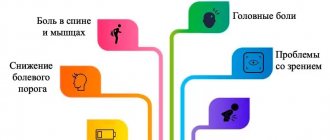This article can not only be read, but also listened to. If it's more convenient for you, turn on the podcast.
Everyone has periods when even simple everyday tasks - washing dishes, doing mail, playing with a child - become a burden. What can we say about complex projects, creativity and new beginnings. In this case, psychologists say that the person has left the mental resource state - that is, he has ceased to feel stable, full, and rested.
This can happen due to illness or extreme fatigue, failures at work and conflicts with loved ones, tragic events, age-related and personality crises, and so on. Weakness and apathy may disappear after a person has rested, or they may turn out to be symptoms of incipient depression and a reason to consult a psychotherapist. Let's figure out what you should do to help yourself.
Forget about magic kickoffs
From childhood we are taught that inaction is always bad. Laziness is a vice, idleness is a sin, procrastination is the lot of losers. And no matter how bad it is, you need to get your butt off the couch, get out of your comfort zone, work, engage in self-development, be active and productive. It is not surprising that, having fallen out of a resourceful state, the first thing a person does is begin to blame himself for it.
Next comes attempts to force oneself to work, punish for inaction and stimulate oneself with threats. All of these are types of negative motivation. HR expert Daniel Pink argues that neither punishment, nor intimidation and pressure, nor the carrot and stick approach works in the long term. On the contrary, this approach leads to the fact that a person no longer sees the meaning in what he is doing.
The very existence of laziness as a vice or negative character trait in the modern world is being questioned.
Some experts claim Laziness Does Not Exist, that laziness does not exist at all. Others believe that it is a defense mechanism that saves us from overwork. Behind inaction there can be a whole tangle of reasons and feelings: fear of failure, lack of motivation, fatigue or illness, and, ultimately, a banal reluctance to do what is needed.
If you fall out of a resourceful state, you should think about taking a break and resting, as far as circumstances allow. Or switch to a kind of energy saving mode and do only the most necessary things, and postpone all other tasks until better times or delegate them to loved ones, friends and colleagues.
Find out more











